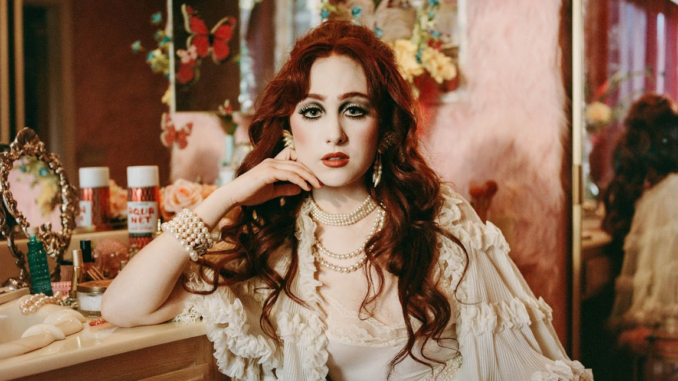
By Rami Mansi
No matter how famous a person is, celebrity or not, setting personal boundaries should not be seen as taboo. With Chappell Roan’s controversial discussion of boundaries as a celebrity, pop culture has shifted in a new direction during the summer of 2024.
Taking a closer look into breakout queer pop star Roan, her road to fame felt instantaneous and fast-paced in the eyes of the mainstream public. Rather, her overnight success took ten years to reach its peak. Throughout the trials and tribulations of finding her identity in pop music through an original debut under her birth name, being dropped by her original label due to low sales, going broke from the expensive lifestyle of California and the music industry, and returning home to only be broken up by her then long-term boyfriend, needless to say, Roan has truly been through a lot her journey of pop stardom.
After becoming the opener for Olivia Rodrigo’s tour, a string of excellent festival performances and releasing a new single, she experienced a surge in popularity, according to Chartmetric. However, with this newfound mainstream success and fast-growing fanbase, many fans felt entitled to Roan and her attention. This led to Roan being stalked at airports, having her family members stalked online, and being approached and followed by fans in public. Roan made a statement on her official Tiktok, debasing her stalkers and asking fans to respectfully but firmly let her be when she is “not working.”
The two-part TikTok created a divide between the fanbase and led to a broader discussion on the Internet. On one hand, Roan discussed how scary it was to get famous this quickly, thrusting her into the spotlight within only days. Fans and internet users alike felt sorry that Roan was going through so much pressure and assured each other that her true fans would support her throughout her career with respect and dignity for her.
However, the other side of the Internet claimed that Roan had only been famous for “a few minutes,” claiming that she is not appreciative of the opportunities that her fame has presented her; many fans also felt as though Roan was not giving her fans enough credit for supporting her.
In response to this, Roan posted a note on her Instagram page, stating she should not be criticized for setting her boundaries. Starting another discussion on social media platforms, she then focused on the hyper-criticization of female pop stars that had been targeted by the media and their fans. Why is it that when female stars set their boundaries, they get condemned by the very people who support them?
Establishing the boundaries between Roan’s pop stardom and her personal life has been necessary with the ebbs and flows of obsessive fan culture. It could possibly be the difference between life and death–an example being Christina Grimmie who was murdered by a fanatic fan after a performance. Grimmie herself was also “not famous enough,” yet her life was taken due to a lack of security and an open heart for her fans.
Women in positions of power and stardom have been attacked for decades, and only in recent times has the public been able to partake in such diminishing attacks. The list goes on: Britney Spears, Princess Diana, Amanda Bynes, and Courtney Love. They are all women who fanatics and the media have abused for years.
Roan has since been supported by her peers and true fans alike, creating a web of support that truly envelops her and respects her boundaries.
In her letter to fans, she wrote “ I feel more love than I ever have in my life. I feel the most unsafe have ever felt in my life.” At a time when female stars are in a constant state of being swarmed and attacked online, let us all make an effort to not only support them on the stage, but off stage as well.
